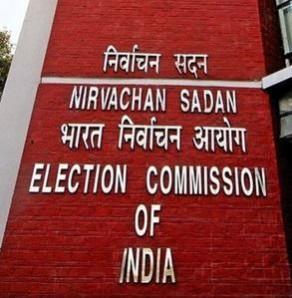
In a significant development, the Election Commission of India (ECI) has announced that 80.11% of electors in Bihar have submitted their enumeration forms (EF) as part of the ongoing Special Intensive Revision (SIR) of the electoral roll.
This initiative aims to ensure the accuracy and inclusivity of the electoral rolls, with four out of every five electors participating in the process. As of 6:00 p.m. on the reporting day, the collection of enumeration forms had reached a total of 6,32,59,497, marking a significant milestone in the revision process.
An ECI official stated, "With this pace, the majority of EFs are likely to be collected much before July 25, 2025." This proactive approach by the ECI underscores its commitment to ensuring that the electoral rolls are as accurate and inclusive as possible, well ahead of the upcoming publication of the draft electoral rolls on August 1.
The ECI has achieved 100% printing of the enumeration forms and is nearing the completion of their distribution to all electors who were found at their addresses.
This logistical feat has been supported by the digitization and uploading of 4.66 crore enumeration forms into ECINet, a newly developed integrated software that has consolidated the 40 different ECI Apps previously in use. This technological advancement is a testament to the ECI's dedication to streamlining and modernizing the electoral process.
Field-Level Efforts and Technological Integration
In the second phase of the SIR, Booth Level Officers (BLOs) are conducting house-to-house visits to assist electors in filling out and submitting their enumeration forms. This grassroots effort is being supervised by a robust team of field-level functionaries, including 38 District Election Officers (DEOs), Electoral Registration Officers (EROs) covering all 243 Assembly Constituencies, and 963 Assistant EROs (AEROs). These teams are working under the close supervision of the Chief Electoral Officer (CEO) to ensure the timely completion of the revision process.

The ECI's efforts are further bolstered by the involvement of 77,895 BLOs, along with 20,603 newly appointed BLOs and other election officials, who are working tirelessly to complete the exercise on time. Additionally, over 4 lakh volunteers are providing crucial support to elderly, disabled, sick, and vulnerable populations, ensuring that no elector is left behind. The proactive involvement of 1.56 lakh Booth Level Agents (BLAs), appointed by all recognized political parties, has also been instrumental in achieving the current level of participation.
Electors are encouraged to submit their enumeration forms along with eligibility documents to ensure their names are included in the draft electoral rolls. However, if additional time is needed to gather these documents, electors have until August 30 to submit them separately. Volunteers are available to assist electors in this process, ensuring that everyone has the opportunity to participate in the democratic process.
Historical Context and Future Implications
The revision of the electoral roll is not only a routine exercise but also a response to the increasing demand from political parties to cleanse the rolls based on eligibility conditions such as residence, age, and Indian citizenship. This demand has been particularly pronounced in recent years, as stakeholders seek to ensure the integrity and fairness of the electoral process. Historically, the revision of electoral rolls has been a critical component of India's democratic process. The ECI has consistently undertaken such revisions to ensure that the rolls are up-to-date and reflective of the current electorate.
In the past, similar initiatives have been undertaken to address discrepancies and inaccuracies in the electoral rolls. For instance, in the early 2000s, the ECI launched a nationwide effort to update the rolls, which involved the use of technology and increased field-level engagement. These efforts have laid the groundwork for the current SIR, which builds on past successes while incorporating new technologies and strategies.
The current revision process in Bihar is a testament to the ECI's commitment to transparency, inclusivity, and efficiency. By leveraging technology, engaging field-level officers, and involving volunteers, the ECI is ensuring that the electoral rolls are as accurate and comprehensive as possible. This approach not only enhances the integrity of the electoral process but also empowers citizens to participate fully in the democratic process.
As the deadline for the submission of enumeration forms approaches, the ECI remains focused on achieving 100% coverage. The dedication and hard work of the BLOs, volunteers, and other election officials are crucial to the success of this initiative. Their efforts are ensuring that every eligible elector in Bihar has the opportunity to have their voice heard in the upcoming elections.








